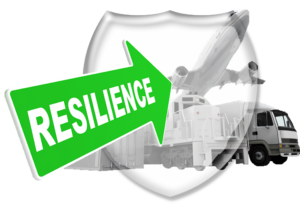Today’s Washington Post, contained an interesting article about Dell Computer’s attempt to become resilient. The article focused on Dell Computer’s announcement that it was opening mall showrooms in Dallas, TX, and West Nyack, NY (“Dell’s New Approach to Retail: Computer Stores with No Inventory,” by Mike Musgrove, Washington Post, 30 May 2006). The showrooms will display Dell products but customers will still have to go on-line to buy them. According to the article, this strategy has many analysts and critics either shaking or scratching their heads. For example,
Tech pundit Tim Bajarin said retail shoppers prefer the sort of instant gratification that comes from walking out of a store with a heavy shopping bag. “How would you feel if you went into a flower store to buy flowers and couldn’t walk out with them?” Bajarin said.
Dell counters that while it is going after the impulse buyer like other mall stores, it believes its remarkably successful e-commerce strategy remains viable.
Dell spokesman Venancio Figueroa said the company is remaining true to its direct-model tenets but is building on a strategy that showroom-type stores give consumers “an idea of how they can use technology in the home as they are making their purchase decisions.” He said, “We want to help consumers understand the benefits of technology.”
What, you ask, does this have to do with resiliency? As I have discussed in past posts, resiliency, as defined by Enterra, is more than bouncing back to a status quo position when having suffered some sort of trauma. Being resilient means an organization is able to anticipate and shape the marketplace. That is what Dell is attempting. The company, whose market share, according to Gartner Inc., dropped from 32 percent to 29.8 percent during the last quarter, is exploring the limits of its marketing strategy, without abandoning what has proved successful.
Although the thinking behind Dell’s decision was not detailed, this is what I believe they were thinking. Impulse buyers will be swayed by the “wow” factor that can be generated by an in-store experience. By having workstations available for these impulse buyers, the sale can be made without having to change Dell’s e-commerce model. Dell is betting that impulse buyers are going to find it gratifying to know that they won’t have to lug heavy computer boxes around the mall or out to the car. Thanks to efficient shipping methods, buyers will have those heavy boxes delivered right to their homes. Dell sees that as a best of both worlds scenario.
There is another interesting point that makes this a “resilient” strategy. Dell has always “written off” that segment of society that doesn’t have access to computers or the Internet. By opening these showrooms, and demonstrating how useful computers can be (like allowing customers to order on-line in the store), they are reaching out to entirely new customers without slighting their traditional market segment. With laptop business sales plateauing, this strategy seems timely.
Only time will tell whether Dell gets the return on investment that they expect. The article concludes:
Dell’s foray into shopping malls is only one of a few surprising recent steps by the company as it seeks to regain momentum. It recently acquired high-end computer maker Alienware Corp. and announced that it will start selling servers that use Advanced Micro Devices Inc. chips. For years, Dell had eschewed acquisitions and been exclusively loyal to AMD rival Intel Corp.
Taking all these actions together, I see a company not just responding to a market downturn, but looking to shape a new future. That is what resilience is all about.




